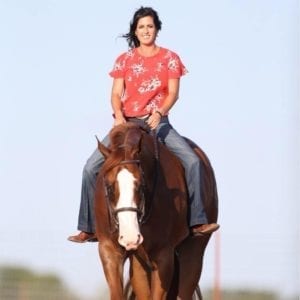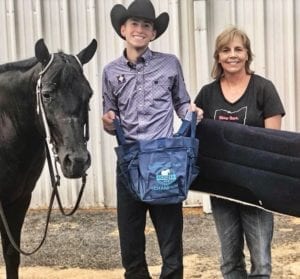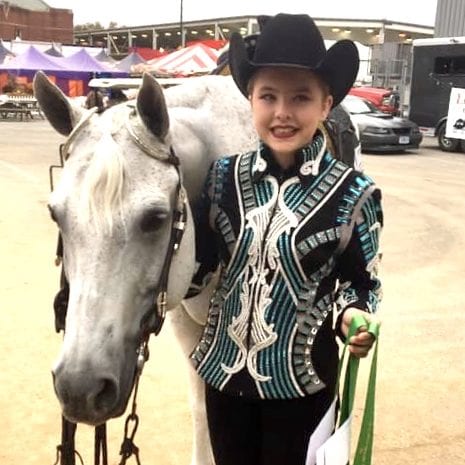The responsibilities of owning horses are never-ending, time-consuming and can add up to be quite expensive. With the amount of care and attention horses require, there is no doubt that leases in the equine industry exist for a reason.
Several owners, trainers and boarding facilities lease horses as a service to accommodate clients. Many equestrians are newcomers, eager to learn as much as they can before purchasing a horse of their own. Trainers may also have clients with the equine know-how, who may want the benefits of ownership without the hassle or full commitment.
Leasing also lessens the financial burdens and time constrictions of owners. Many families start leasing out their horse when their child heads to college, starts their career, gets married or are soon to become parents themselves.
Whatever the reasons, leasees maintain the horse so the owners can stay lovingly involved, along with allowing the leasee an incredible opportunity to share in the delights of caring for your family horse.
The thought of leasing your horse can be overwhelming and feel a little bit risky. There are serious concerns with finding someone trustworthy to care for, ride and show your beloved horse. This task can be challenging, but also prove to be a rewarding relationship for all involved, including your horse.
Smart Starts and Winning Finishes
 There is so much to learn and prepare for before becoming a first-time horse owner. Just the overall health and medical knowledge needed is crucial and can take years to gain. Not to mention, the necessary countless hours handling horses and consistent time spent in the saddle with an experienced trainer are beyond valuable. Leasing is the smartest start on the long passionate road of horse ownership.
There is so much to learn and prepare for before becoming a first-time horse owner. Just the overall health and medical knowledge needed is crucial and can take years to gain. Not to mention, the necessary countless hours handling horses and consistent time spent in the saddle with an experienced trainer are beyond valuable. Leasing is the smartest start on the long passionate road of horse ownership.
However, leasing is not only for beginners. Trainer and owner of Circle M Show Horses in Saegertown, Pennsylvania, Melissa Shetler has used a lease opportunity to continue her own daughter’s show career when they lost their family gelding to colic. “The owners of the horse we leased have been amazing with this opportunity. We can’t thank them enough,” Shetler added, “We got him here with us just weeks before the Congress, and my daughter was top ten in two classes.”
Leasing opportunities like this prove to be a win/win situation.
Contracts That Care
Your horse is a financial and emotional asset. The commitments of money, time, effort and energy you have invested in your horse with the costs of trainers, vets, farriers, etc, need to be protected. Things are bound to happen in life to horses and to equestrians that are scary, unfortunate, unforeseen and unexplained. That is the risk you take with any sport involving animals. Having a written contract is a must, and no one should go into a lease partnership without having one drawn up and signed.
 Farley McLendon of McLendon Show Horses in Whitesboro, Texas told us, “The clients and you have to have every little detail covered in a particular contract. I always have a ‘get out’ clause for both parties. The ‘get out’ clause is mainly to cover the welfare of the horse.”
Farley McLendon of McLendon Show Horses in Whitesboro, Texas told us, “The clients and you have to have every little detail covered in a particular contract. I always have a ‘get out’ clause for both parties. The ‘get out’ clause is mainly to cover the welfare of the horse.”
Contracts will do more to protect yourself, your horse and the people involved; it will give everyone some peace of mind.
Shetler added, “I make sure the lease contract is agreed upon by all involved. This is key if it’s on paper; it keeps both the owner and leasee safe.” Shetler continued, “I also require that the horse is insured.”
There can be a lot of grey areas within a black and white lease when it comes to who is ultimately responsible for the horse’s medical and health care. With equine medical insurance, those grey areas can be cleared up with the various companies that cover veterinary costs associated with illnesses, injuries, loss of use and even cases when death occurs.
 Trainer, Lynne Puthoff of Puthoff Performance Horses in West Milton, Ohio told us, “Most leases I have been involved with are that all the bills are covered by the leasee, just as if they own the horse. Most of the time, the actual owner keeps up the insurance as they are named as the first beneficiary.”
Trainer, Lynne Puthoff of Puthoff Performance Horses in West Milton, Ohio told us, “Most leases I have been involved with are that all the bills are covered by the leasee, just as if they own the horse. Most of the time, the actual owner keeps up the insurance as they are named as the first beneficiary.”
The owner can set up the type of lease that covers issues most important to them and their animal and a couple things will directly affect what kind of lease to find. The amount of time, responsibility and riding allowed by the owner will determine whether a full-time or partial lease would work better.
The leasee may have limits of their own to work the lease around as well. Figuring out the level of commitment and involvement that the owner and leasee want to have with the horse is a crucial component to the lease.
Another condition in the contract that needs to be addressed is where the horse is kept during the lease. An off-site lease means the horse may leave the owner’s property to reside with the leasee at the facility of their choice. An on-site lease states the horse will not be moved from the place it is at currently. Having your expectations and plans known up front will help make the contract and situation a good fit for everyone involved with the leased horse.
McLendon said, “I am not a fan of off-site leases. You cannot visually see that your horse is being cared for in the same manner you would.”
Whichever type of lease you choose, a contract will help determine what legal liabilities, personal preferences and rules you want to be covered in the lease.
Lease to Own
When might it make sense for the leasee to bite the bullet and dive in the world of horse ownership?
McLendon answered, “I see the benefits of leasing, but ultimately, in the long run, I feel like the leasees should purchase their own.”
There are many unknown factors in the world of leasing. It can get complicated whenever two or more people are dealing with the same horse, especially a show horse with extensive training that needs to be kept working and thinking in the show pen.
Puthoff told us, “I have had lease to buy options, and I have had people buy a horse after leasing. For someone wanting to lease their horse out but not sell is a very good thing as the horse is kept in show condition if that owner wants to come back to showing.”
Puthoff added, “One of the most important aspects I recommend is the actual owner keep the original papers of the horse.”
Lease with Ease
In leasing horses, all involved want an agreeable and heart-felt experience. Even though the requirements of a lease can feel daunting, both of you can make conditions that suit both of your situations.
If the owner and leasee both strive to make the horse your priority and respect each other and honor your written lease terms, you will likely have a drama-free lease.
About the Author: Laura Boynton’s steadfast love for animals started as a young child and continues to a big part of her life today. Being a veterinary technician for over fifteen years, she now spends her days managing Casalae Farms, an equine boarding and training facility in Traverse City, Michigan where she was born and raised. Laura shows in the all-around classes with her two mares, Good Chip Happens and Just A Good Lady.









